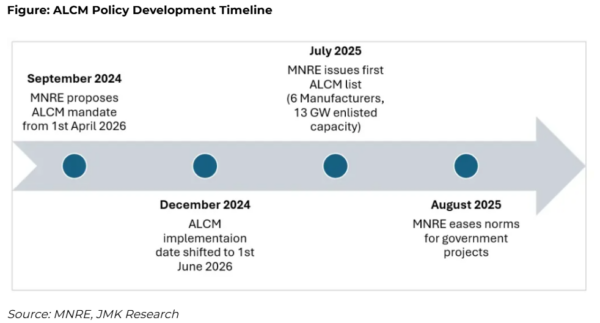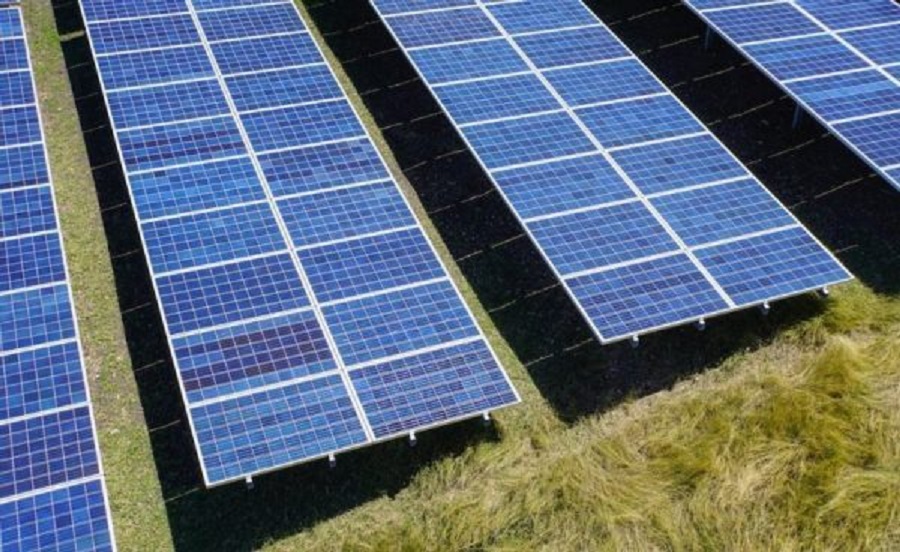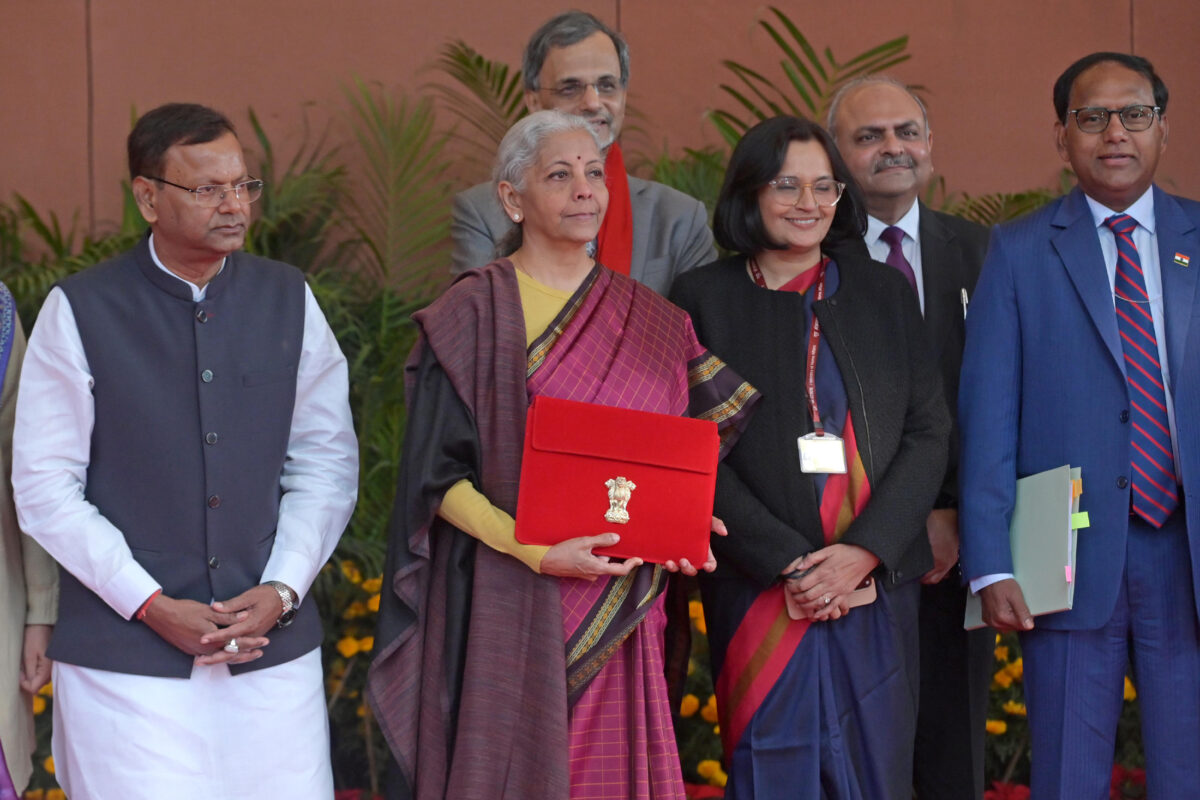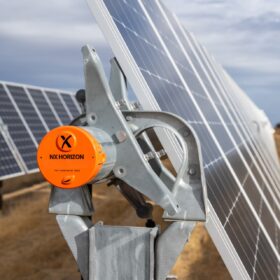Approved List of Models and Manufacturers (ALMM) is an umbrella term for non-tariff barriers to promote the domestic manufacturing capabilities of clean energy products, including solar modules and wind turbines. Until 2025, the ALMM exclusively focused on solar modules. In an effort to enhance the integration of the upstream solar manufacturing value chain, the Ministry of New and Renewable Energy (MNRE) has now expanded the ALMM mandate to include solar cells. The implementation date for enforcing ALMM List II for solar cells, known as the Approved List of Cells and Manufacturers (ALCM), is set for June 1, 2026.

Following the ALCM mandate in 2024, the MNRE published the first ALCM list in July 2025, which featured six manufacturers with a total listed capacity of approximately 13 GW. This capacity is significantly lower than that of the ALMM list released in June 2025, which included over 100 manufacturers and a cumulative listed capacity of 91.5 GW.
Due to the considerable gap in domestic manufacturing capabilities for modules and cells, industry stakeholders have called for relaxations in the ALCM norms. In response, the MNRE issued an office memorandum on August 12, 2025, stating that “ Government projects having bid submission date on or before 31st August 2025 shall be exempt from using solar PV cells enlisted in ALMM List-II.” The memorandum specifies that no relaxations will apply to other types of projects.
Given the current commissioning timelines, government-bid utility projects will continue to be exempt from using non-ALCM modules for an additional 18 to 24 months compared to other renewable energy projects. This difference in exemption timelines could significantly hinder the growth of non-government bidding-based renewable energy projects, particularly in the rapidly expanding green open access and rooftop solar sectors.
Equitable treatment across all renewable energy segments is crucial to achieving India’s target of 500 GW of renewable energy by 2030. Furthermore, the corporate green open access market segment, which has only recently begun to grow in the last couple of years, should not be undermined. Following the implementation of ALCM, the expected shortage of DCR modules is likely to hamper the execution of nearly 20–25 GW of green open access projects over the next 2-3 years. Concurrently, the high prices of DCR modules will also increase the project power tariff by up to INR 0.4 – 0.5 per unit.
In addition to regulatory barriers, the government must also accelerate the resolution of roadblocks hindering the development upstream integration of solar module manufacturing in India. Ensuring the optimum balance between building a strong domestic PV supply chain and meeting future project development targets will be crucial in shaping India’s path to Net Zero.
The views and opinions expressed in this article are the author’s own, and do not necessarily reflect those held by pv magazine.
This content is protected by copyright and may not be reused. If you want to cooperate with us and would like to reuse some of our content, please contact: editors@pv-magazine.com.








By submitting this form you agree to pv magazine using your data for the purposes of publishing your comment.
Your personal data will only be disclosed or otherwise transmitted to third parties for the purposes of spam filtering or if this is necessary for technical maintenance of the website. Any other transfer to third parties will not take place unless this is justified on the basis of applicable data protection regulations or if pv magazine is legally obliged to do so.
You may revoke this consent at any time with effect for the future, in which case your personal data will be deleted immediately. Otherwise, your data will be deleted if pv magazine has processed your request or the purpose of data storage is fulfilled.
Further information on data privacy can be found in our Data Protection Policy.